- Home
- Dan Abnett
Tomb Raider: The Ten Thousand Immortals Page 5
Tomb Raider: The Ten Thousand Immortals Read online
Page 5
“Yes, I know the story,” said Lara. “I’m interested in the artifact. I wondered if it’s possible there’s any substance to the myth, if it might even still exist somewhere.”
“It never existed at all,” said Babbington. He laughed. The sound was sudden and unexpected, and it made Lara tense for a moment. “That probably wasn’t what you wanted to hear, and I set aside an hour for this meeting. Let’s have a cup of tea and talk about it. It’s interesting stuff.”
“Thank you,” said Lara.
Lara also stood as Babbington got up to make the tea.
“May I?” she asked, gesturing at the shelves.
“Of course,” said Babbington. “There are some fine pieces, so I’d prefer you didn’t touch anything without asking first.”
“I wouldn’t dream of it,” said Lara.
“Go ahead,” said Babbington, waving the kettle.
Lara moved slowly around the room. The objects were meticulously grouped by culture and period, and then by materials and uses. Oddly, she thought, none of them were labeled.
“You specialise in the Ancient Greeks?” asked Lara.
“I do,” said Babbington, “like my father before me.”
“Then, you know the Golden Fleece well?”
“I believe I mentioned that there is no such artifact,” said Babbington. “There was never a golden fleece… Never one, but possibly many.”
“I don’t understand,” said Lara.
“Shall I be mother?” asked Babbington, picking up a small, impossibly ornate teapot from the tray he had placed on the table beside them.
“Thank you,” said Lara.
“Of course you don’t understand,” said Babbington. “The Golden Fleece is a myth, but like many myths it has its own prosaic explanation. Careful research generally sorts these things out. It’s a matter of education. Of course, the legends are far more attractive, and so they persist.”
“Go on,” said Lara, taking the offered teacup and saucer.
“You’ve no doubt seen films about the gold rush in modern America? You’ve seen men standing in streams with wide, shallow dishes, panning for gold?”
“Of course,” said Lara.
“Excellent,” said Babbington. “Did you know that panning is the most ancient method of mining for gold known to man?”
“I didn’t,” said Lara.
“Well, it is,” said Babbington. “It goes back to Roman times. It’s all about specific gravity. Gold is heavy, making it easy to extract by this very simple method. Of course, it isn’t terribly efficient, but where mineral deposits are substantial and individuals are keen… You get the picture.”
“Yes,” said Lara. “But what do ancient methods of gold mining have to do with the fleece?”
“I’m coming to that,” said Babbington. “Patience. Two thousand years ago, there were variations in gold mining methods. The Romans used panning. There were also significant gold deposits in parts of the Caucasus, notably Colchis.”
“Where the Golden Fleece originates in the legend?”
“That’s right,” said Babbington. He sipped from his teacup, and continued. “In Colchis, they did not pan for gold. They lay fleeces on the streambeds and allowed the running water to flow through them, taking the gold with it. The gold lodged in the wool fibres. When the fleeces were removed from the streams, the gold was combed out and collected.”
“And you believe that the myth of the Golden Fleece comes directly from this form of gold mining in Colchis?” asked Lara.
“I’m sure of it,” said Babbington. “There is no Golden Fleece, and there never was one. I suppose you might surmise that there were many golden fleeces, if you like to fill your head with romantic notions. I’m a professor of antiquities. As much as I enjoy the legends, I prefer to do solid research. This, Miss Croft, is solid research.”
“You don’t believe in the healing properties of the Golden Fleece?” asked Lara.
“That’s another question entirely,” said Babbington. “Various forms of the legend claim that the Golden Fleece had a number of properties. The fleece was said to confer kingship on its owner, and was even thought to bring prosperity to the land.”
“I know that King Pelias sent Jason on his quest for the Golden Fleece in the belief that he was a pretender to the throne, and that recovering the artifact was an impossible undertaking.”
“Pelias believed that Jason, the man with one sandal, would perish in his attempt to retrieve the Golden Fleece,” said Babbington, warming to his subject. “Jason’s death would rid Pelias of the threat of being ousted from his throne.”
“There are lots of versions of the story though,” said Lara.
“Time,” said Babbington. “You must have played at Chinese whispers as a child.”
“So, we might never know what was important or what was true. The Golden Fleece might have conferred kinship, or protection or prosperity. It might not have been about healing at all?”
“The legends tell us as much about the culture of the times as the artifacts I study,” said Professor Babbington.
“Nevertheless, the fleeces existed,” said Lara, “and the gold collected in them.”
“Now you’re thinking,” said Babbington. “There are always avenues to explore in this field, Miss Croft. Antiquities and artifacts are never simply objects. Their stories tell us about the people that made them and the times they lived in. They also tell us something about all the hands they passed through, and they tell us about ourselves.”
“Perhaps you’re not quite the pragmatist you pretend to be, Professor,” said Lara.
“When did I pretend to be a pragmatist?” asked Babbington. “Will you stay for my lecture later this afternoon? It’s part of a series, with two more over the next few days. I could arrange for a guest room in college if you’d like.”
Lara hadn’t planned to stay in Oxford, but with one door apparently closing, she was keen to find a way to open another.
“A couple of my post-grads are very good, and one of them is concentrating his studies on Colchis. You’ll find we have a lively debate,” said Babbington.
“In that case, I think I will stay. Thank you,” said Lara.
“Good,” said Babbington. “Let’s get you set up.”
Chapter 8
The second lecture was scheduled for Thursday morning.
Lara had sat in on the first, and Babbington had been right; it was interesting. The group was a small one, and the lecture was intimate and clearly tailored to the needs of the graduate students present. There was a discussion of archaeology, and also of search and recovery where archaeological sites had been historically pillaged. There was reference to dating and identification of objects, but also to myths and legends surrounding particular artifacts.
No one interrupted the lecture, but at the end, two students asked questions and others joined in with opinions, and subsidiary questions were raised. Some of the questions were of a practical nature, others more esoteric or idealogical… “Romantic,” as Babbington might put it.
At the end of Thursday’s lecture, Lara decided to ask a question of her own.
“In what general context can we place artifacts of a perishable nature?” she asked.
“Ah...” said Babbington. “Has everyone met Lara Croft? Miss Croft is interested in the Golden Fleece, but do we believe that she wants to discuss the properties of wool and the likelihood of it surviving for two millennia?”
The students laughed.
“Thank you, everybody,” said Babbington, “That’s it for today. I’ll see you all for the final lecture in this series tomorrow, and you can have a lie-in and a good lunch. We start at two.”
As Lara reached the aisle from her seat in the second row of the lecture theatre, a tall, well-built man in his mid-twenties was waiting for her, a broad smile on his face. She’d noticed him at Babbington’s previous lecture, not least because he looked less like an archaeology student than anyone she had ever met.
“You must be Lara Croft,” he said as she approached.
“I guess I must,” she said.
“Kennard Montez,” he said, stepping aside so that they were standing next to each other in the aisle. “Can I buy you a cup of coffee?”
“That rather depends,” said Lara, returning the smile that had never wavered from his face.
“We have a shared interest,” he said. “I’m doing some work on Colchis, and I know a bit about the Golden Fleece. I thought we could swap stories.”
“I should warn you that I know next to nothing about it,” said Lara.
“Then, who knows?” said Kennard. “Perhaps I can help you out with your research.”
“In that case, I’d love a cup of coffee,” said Lara. “The Randolph is just across the street?”
“Why don’t we save ourselves the trouble and go next door to the Ashmolean?” said Kennard. “We can take a walk around room sixteen while we’re there.”
“What’s room sixteen?” asked Lara.
“Ancient Greece,” said Kennard as they left the lecture theatre. “No Golden Fleece, I’m afraid, but they’ve got some wonderful pieces. You’ll love it.”
Kennard Montez had a soft, middle-American accent and a hard, athletic American body, and Lara felt a little wary of him. She reminded herself that she was in public, and perfectly safe. They walked the few hundred feet to the best museum in Oxford. It was also one of the oldest in the country and the first university museum in the world.
“Take no notice of Babbington,” said Kennard as they sat down in t
he coffee shop with their tray of drinks. “He’s an arrogant bastard.”
“He seems to know his stuff, and he owns some beautiful objects,” said Lara.
“True and true,” said Kennard. “He shouldn’t have made you the butt of his joke, though. The question was valid.”
“Only up to a point,” said Lara. “Stuff still rots. That’s why I’ve spent time digging post holes at archaeological sites where no posts remain, because they’ve rotted away. And that’s wood. I’m talking about wool.”
“Things also miraculously survive,” said Kennard. “There are thousands of examples of Roman leather shoes. Egyptian mummies dating back two and a half millennia still have cloth remains. Not everything is lost.”
“An Egyptian mummy is very particular, though, isn’t it?” said Lara. “It’s special. Great lengths were taken to preserve the remains of the dead because of the religious beliefs held by the people in that time and place. The cloth survives because of those other factors.”
“Lots of things are special,” said Kennard.
“Do you agree with Professor Babbington about the gold mining methods in Colchis?” asked Lara. “That there is no such thing as the Golden Fleece?”
“There’s a good argument for that,” said Kennard. “But a pragmatist can make a good argument for anything. How many people do you know who believe in God? Some things only require an act of faith.”
Lara laughed.
“Does Professor Babbington know you’re one of his despised romantics?” she asked.
“Should that worry me?” asked Kennard.
They sat for a few moments. Lara toyed with her mug.
“So even if we concur with the professor’s pragmatic view, you believe that one of the mining fleeces might still have been special in some particular way?”
“I don’t see why that shouldn’t be possible,” said Kennard. “Sometimes stories grow up around otherwise unremarkable objects. When some event goes unexplained, it becomes a miracle, perhaps not so much now, but certainly in ancient times.”
“And if such an artifact did exist for some reason,” said Lara, “you also believe that it might have survived?”
“When an object, any object, whatever its intrinsic value, is considered special or has some other value attached to it, people do their best to preserve it, and they pass it on or acquire it.”
“Give me an example,” said Lara.
“Take a piece of paper… This, for example,” said Kennard, holding up a paper napkin. “It’s totally disposable. It’s meaningless, valueless. Thousands of these are used and thrown away in this coffee shop every year. But imagine, I don’t know, this was 1970 and J.R.R. Tolkein was sitting at the next table.”
“Why Tolkein?” asked Lara.
“Merton alum,” said Kennard. “Imagine he graciously gave me his autograph on this napkin before he died. Suppose he also wrote some profound statement in Elvish. My napkin would have meaning and value. Agreed?”
“Of course it would,” said Lara.
“And, unlike all the other napkins, it might survive a thousand years.”
“You make a very good point,” said Lara.
“You haven’t told me why the Golden Fleece and not something else,” said Kennard.
“I’m interested in artifacts with healing properties,” said Lara, not wanting to give too much away, “and the fleece seemed like the obvious place to start.”
“It is,” said Kennard. “Its whereabouts has also been shrouded in mystery for a very long time.”
“You’re not giving me a lot of hope of finding it,” said Lara, smiling.
“Then let me give you some inspiration instead,” said Kennard, rising from the table. “Let’s see what room sixteen has to offer.”
They took the main staircase up to the first floor and walked through room twenty, the Aegean, to room sixteen.
“Wait a minute,” said Lara as they stood before a cabinet full of painted Greek pottery. “Colchis isn’t in Greece… It’s in the Caucasus.”
“It’s about two and a half thousand kilometres away in Georgia, on the Black Sea coast,” said Kennard. “The Ancient Greek civilisation isn’t your area of study, is it?”
“I know the basic, undergrad stuff, but not recently, no,” said Lara.
“The Greeks extended their empire just as the Romans did. Remember Alexander the Great?”
“Of course,” said Lara. “Foolish of me. He conquered chunks of Africa and Asia, and didn’t he get as far as Pakistan?”
“Precisely,” said Kennard. “The Black Sea was a stone’s throw away by comparison. A lot of my studies on Colchis relate in some way to Ancient Greece.”
“Thanks for the coffee, and this,” said Lara, gesturing at the room around them. “It’s been useful.”
“We’ve hardly started,” said Kennard as they found their way back to the main staircase. “I’ve got quite a lot of notes back in my rooms. Some of them might prove useful to you. I’ve got plenty of time, and it’d be a pleasure.”
Lara checked her watch and smiled.
“Sadly, I’ve got to be somewhere,” she said.
“Later, then?” asked Kennard.
Lara was aware that she didn’t want to miss the opportunity to learn more about the Golden Fleece. She was also aware that Kennard Montez was flirting with her.
“Can you meet me in the college bar around nine o’clock?” she asked. “I’ve got a dinner, but I’d appreciate the chance to take a look at your work.”
“Only if you let me buy the first round,” said Kennard.
“Nine o’clock, then,” said Lara as they left the Ashmolean.
“It’s a date,” said Kennard in his soft American accent. Lara stalled for a moment, and Kennard turned right to walk back to the School of Archaeology, just as she hoped he would. She turned left to cross the road and walk down Broad Street. If he turned around, she wanted him to see her walking away with a purpose.
Chapter 9
It wasn’t hard to track down Willow at St. Edmund Hall. Lara needed a break. She needed to relax, and Willow and her friends on the train had made her smile, had made her remember what it was like to feel like a student again, to feel normal. In their company, Lara had almost forgotten what had happened to her and Sam on Yamatai and in the last couple of weeks. She could almost put aside her worries about Sam and what she was going through.
The college was open to visitors, and Lara walked into the pretty, lawned quad as a flutter of students poured through from the JCR beyond. One of them was Elliot, who had been sitting on the train to Oxford with Willow.
“Excuse me,” said Lara, “Elliot, isn’t it?”
“Hello,” said Elliot. “You decided to visit after all.”
“It’s very pretty,” said Lara, looking around at the buildings surrounding the quad.
“Just don’t walk on the grass,” said Elliot, smiling. “I’d give you the tour, but I’ve got a lecture.”
“No, that’s OK,” said Lara. “I just stopped to say hello.”
“Wait there a minute,” said Elliot. He ducked back through the archway at the far end of the quad, and returned two minutes later with Willow in tow. The girl trotted gleefully up to Lara and threw her arms around her.
“You stayed,” she said.
“Just for a couple of days,” said Lara. “I’ve been at Merton, sitting in on some lectures.”
“You could have stayed with us,” said Willow. “Promise you’ll have dinner with us tonight.”
“I was hoping I might,” said Lara. “But I’ve got to be back by nine.”
“Stay now, then,” said Willow. “I’m supposed to be writing an essay, but it can wait. Say you’ll stay.”
“I’d love to,” said Lara.
Lara was sorry to leave at nine o’clock. She felt more relaxed after a few hours with Willow than she had since she’d visited Sam in hospital. She felt safe in the big airy dining room at Teddy Hall, among the undergraduates with all their enthusiasm and lively conversation. She couldn’t believe that she’d been just like them so recently. Yamatai had ended all that.

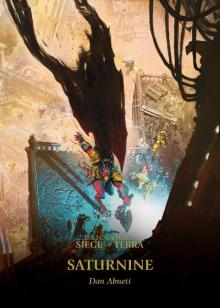 Saturnine
Saturnine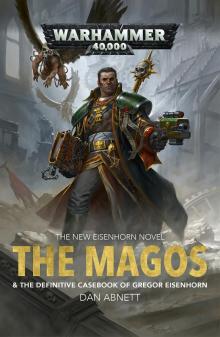 The Magos
The Magos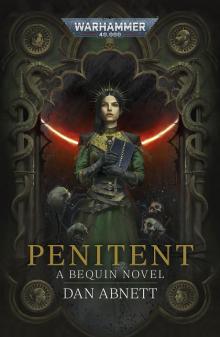 Penitent
Penitent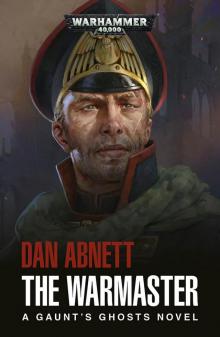 THE WARMASTER
THE WARMASTER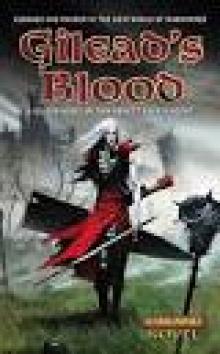 Gilead's Blood
Gilead's Blood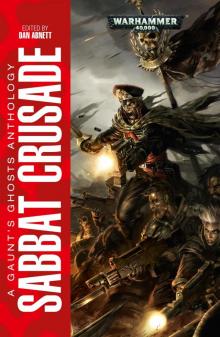 Sabbat Crusade
Sabbat Crusade![[Warhammer 40K] - Double Eagle Read online](http://i1.bookreadfree.com/i/03/16/[warhammer_40k]_-_double_eagle_preview.jpg) [Warhammer 40K] - Double Eagle
[Warhammer 40K] - Double Eagle![[Gaunt's Ghosts 02] - Ghostmaker Read online](http://i1.bookreadfree.com/i/03/16/[gaunts_ghosts_02]_-_ghostmaker_preview.jpg) [Gaunt's Ghosts 02] - Ghostmaker
[Gaunt's Ghosts 02] - Ghostmaker![[Gaunt's Ghosts 10] - The Armour of Contempt Read online](http://i1.bookreadfree.com/i/03/16/[gaunts_ghosts_10]_-_the_armour_of_contempt_preview.jpg) [Gaunt's Ghosts 10] - The Armour of Contempt
[Gaunt's Ghosts 10] - The Armour of Contempt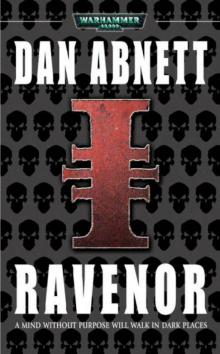 Ravenor
Ravenor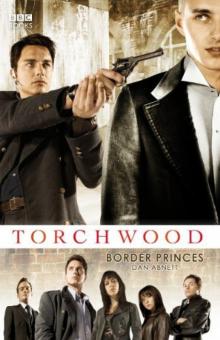 Border Princes
Border Princes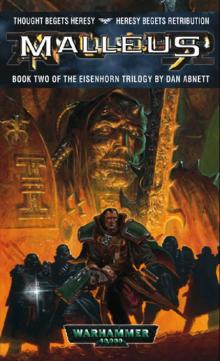 Warhammer - Eisenhorn 02 - Malleus (Abnett, Dan)
Warhammer - Eisenhorn 02 - Malleus (Abnett, Dan)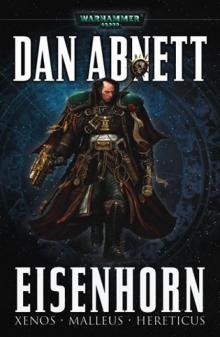 Eisenhorn Omnibus
Eisenhorn Omnibus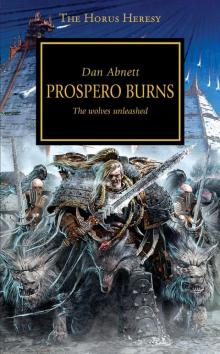 Prospero Burns
Prospero Burns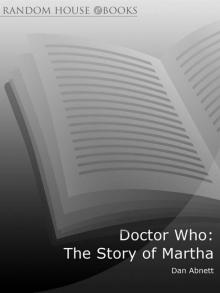 The Story of Martha
The Story of Martha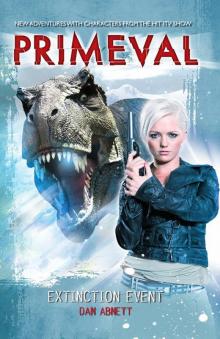 Extinction Event
Extinction Event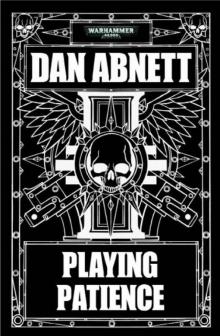 Playing Patience
Playing Patience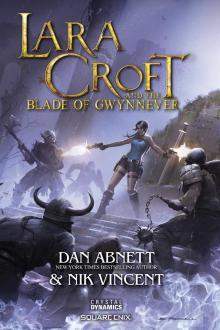 Lara Croft and the Blade of Gwynnever
Lara Croft and the Blade of Gwynnever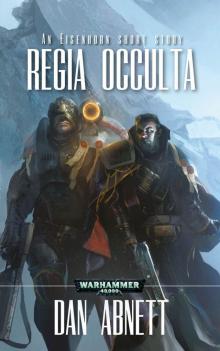 Regia Occulta
Regia Occulta![[Gaunt's Ghosts] - The Iron Star Read online](http://i1.bookreadfree.com/i/03/13/[gaunts_ghosts]_-_the_iron_star_preview.jpg) [Gaunt's Ghosts] - The Iron Star
[Gaunt's Ghosts] - The Iron Star![[Warhammer] - Fell Cargo Read online](http://i1.bookreadfree.com/i/03/13/[warhammer]_-_fell_cargo_preview.jpg) [Warhammer] - Fell Cargo
[Warhammer] - Fell Cargo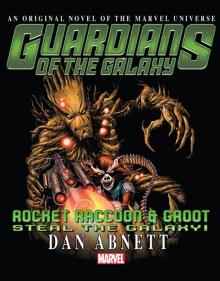 GUARDIANS OF THE GALAXY: ROCKET RACCOON & GROOT STEAL THE GALAXY!
GUARDIANS OF THE GALAXY: ROCKET RACCOON & GROOT STEAL THE GALAXY!![[Ravenor 01] Ravenor - Dan Abnett Read online](http://i1.bookreadfree.com/i/03/20/[ravenor_01]_ravenor_-_dan_abnett_preview.jpg) [Ravenor 01] Ravenor - Dan Abnett
[Ravenor 01] Ravenor - Dan Abnett![[Gaunt's Ghosts 06] - Straight Silver Read online](http://i1.bookreadfree.com/i/03/17/[gaunts_ghosts_06]_-_straight_silver_preview.jpg) [Gaunt's Ghosts 06] - Straight Silver
[Gaunt's Ghosts 06] - Straight Silver![[Ravenor 02] Ravenor Returned - Dan Abnett Read online](http://i1.bookreadfree.com/i/03/20/[ravenor_02]_ravenor_returned_-_dan_abnett_preview.jpg) [Ravenor 02] Ravenor Returned - Dan Abnett
[Ravenor 02] Ravenor Returned - Dan Abnett![[Gaunt's Ghosts 08] - Traitor General Read online](http://i1.bookreadfree.com/i/03/14/[gaunts_ghosts_08]_-_traitor_general_preview.jpg) [Gaunt's Ghosts 08] - Traitor General
[Gaunt's Ghosts 08] - Traitor General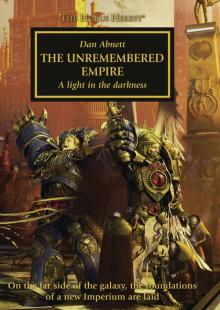 The Unremembered Empire
The Unremembered Empire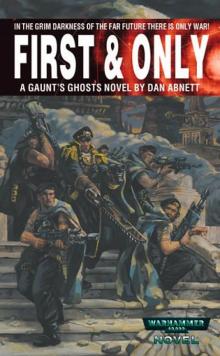 First and Only
First and Only![[Darkblade 05] - Lord of Ruin Read online](http://i1.bookreadfree.com/i/03/15/[darkblade_05]_-_lord_of_ruin_preview.jpg) [Darkblade 05] - Lord of Ruin
[Darkblade 05] - Lord of Ruin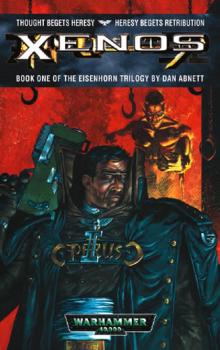 Warhammer - Eisenhorn 01 - Xenos (Abnett, Dan)
Warhammer - Eisenhorn 01 - Xenos (Abnett, Dan) Meduson
Meduson The Fall of Malvolion
The Fall of Malvolion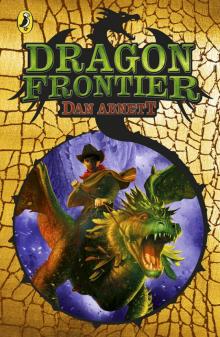 Dragon Frontier
Dragon Frontier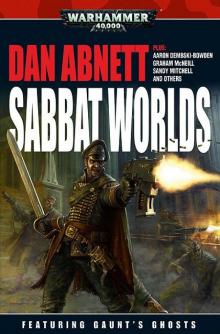 Sabbat Worlds
Sabbat Worlds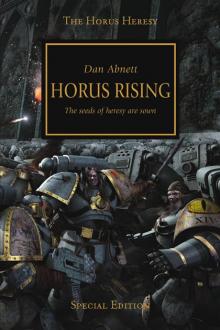 Horus Rising
Horus Rising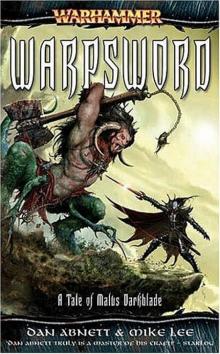 Warhammer - Darkblade 04 - Warpsword
Warhammer - Darkblade 04 - Warpsword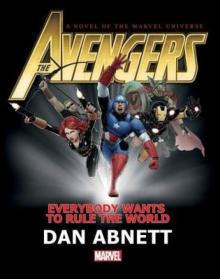 Avengers_Everybody Wants to Rule the World_Marvel Comics Prose
Avengers_Everybody Wants to Rule the World_Marvel Comics Prose![[Gaunt's Ghosts 04] - Honour Guard Read online](http://i1.bookreadfree.com/i/03/16/[gaunts_ghosts_04]_-_honour_guard_preview.jpg) [Gaunt's Ghosts 04] - Honour Guard
[Gaunt's Ghosts 04] - Honour Guard![[Darkblade 04] - Warpsword Read online](http://i1.bookreadfree.com/i/03/16/[darkblade_04]_-_warpsword_preview.jpg) [Darkblade 04] - Warpsword
[Darkblade 04] - Warpsword![[Gaunt's Ghosts 11] - Only in Death Read online](http://i1.bookreadfree.com/i/03/16/[gaunts_ghosts_11]_-_only_in_death_preview.jpg) [Gaunt's Ghosts 11] - Only in Death
[Gaunt's Ghosts 11] - Only in Death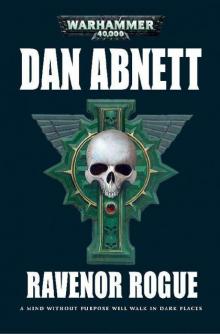 Ravenor Rogue
Ravenor Rogue![[Ravenor 03] Ravenor Rogue - Dan Abnett Read online](http://i1.bookreadfree.com/i/03/16/[ravenor_03]_ravenor_rogue_-_dan_abnett_preview.jpg) [Ravenor 03] Ravenor Rogue - Dan Abnett
[Ravenor 03] Ravenor Rogue - Dan Abnett Double Eagle
Double Eagle Doctor Who - The Silent Stars Go By
Doctor Who - The Silent Stars Go By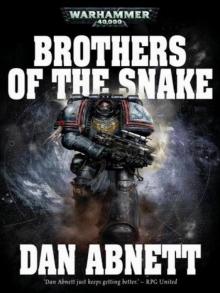 Brothers of the Snake
Brothers of the Snake Warhammer - Eisenhorn 03 - Hereticus (Abnett, Dan)
Warhammer - Eisenhorn 03 - Hereticus (Abnett, Dan)![[Darkblade 03] - Reaper of Souls Read online](http://i1.bookreadfree.com/i/03/16/[darkblade_03]_-_reaper_of_souls_preview.jpg) [Darkblade 03] - Reaper of Souls
[Darkblade 03] - Reaper of Souls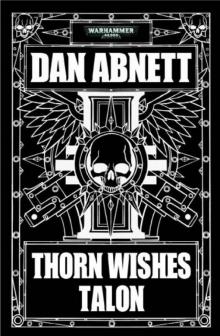 Thorn Wishes Talon
Thorn Wishes Talon Doctor Who
Doctor Who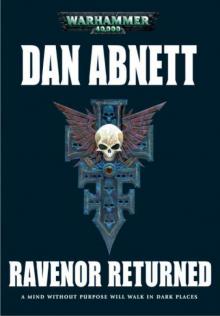 Ravenor Returned
Ravenor Returned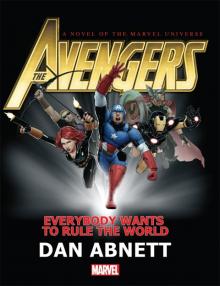 Avengers: Everybody Wants to Rule the World
Avengers: Everybody Wants to Rule the World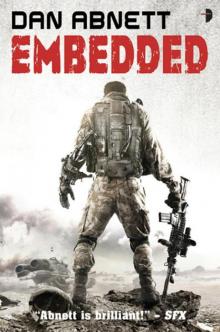 Embedded
Embedded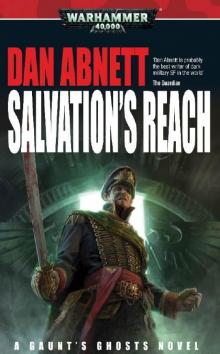 Salvation's Reach
Salvation's Reach![[Gaunt's Ghosts 03] - Necropolis Read online](http://i1.bookreadfree.com/i/03/19/[gaunts_ghosts_03]_-_necropolis_preview.jpg) [Gaunt's Ghosts 03] - Necropolis
[Gaunt's Ghosts 03] - Necropolis![[Darkblade 01] - The Daemon's Curse Read online](http://i1.bookreadfree.com/i/03/17/[darkblade_01]_-_the_daemons_curse_preview.jpg) [Darkblade 01] - The Daemon's Curse
[Darkblade 01] - The Daemon's Curse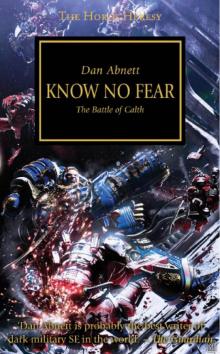 Know No Fear
Know No Fear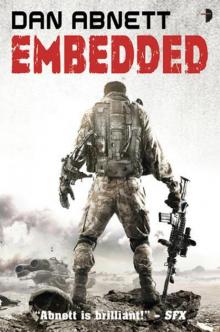 Dan Abnett - Embedded
Dan Abnett - Embedded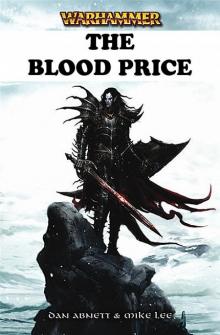 00.1 - The Blood Price
00.1 - The Blood Price![[Warhammer 40K] - Sabbat Worlds Read online](http://i1.bookreadfree.com/i/03/17/[warhammer_40k]_-_sabbat_worlds_preview.jpg) [Warhammer 40K] - Sabbat Worlds
[Warhammer 40K] - Sabbat Worlds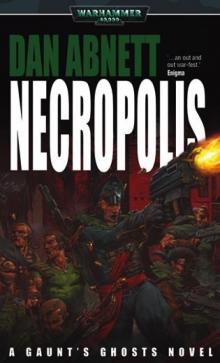 Necropolis
Necropolis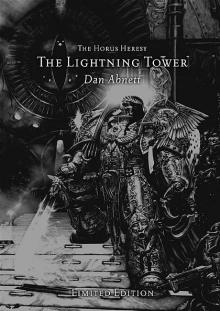 The Lightning Tower & The Dark King
The Lightning Tower & The Dark King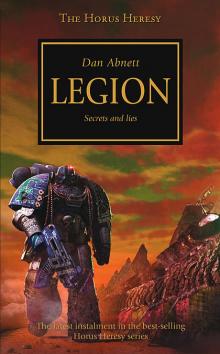 Legion
Legion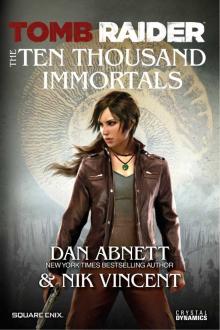 Tomb Raider: The Ten Thousand Immortals
Tomb Raider: The Ten Thousand Immortals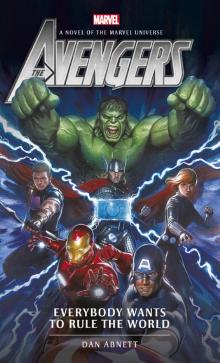 Avengers
Avengers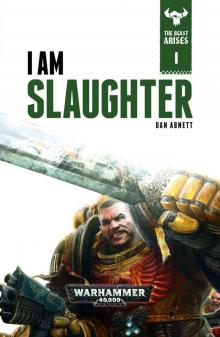 I am Slaughter
I am Slaughter![[Gaunt's Ghosts 07] - Sabbat Martyr Read online](http://i1.bookreadfree.com/i1/04/02/[gaunts_ghosts_07]_-_sabbat_martyr_preview.jpg) [Gaunt's Ghosts 07] - Sabbat Martyr
[Gaunt's Ghosts 07] - Sabbat Martyr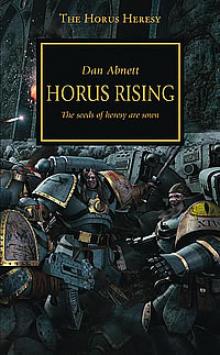 The Horus Heresy: Horus Rising
The Horus Heresy: Horus Rising![[Gaunt's Ghosts 01] - First & Only Read online](http://i1.bookreadfree.com/i1/04/02/[gaunts_ghosts_01]_-_first_&_only_preview.jpg) [Gaunt's Ghosts 01] - First & Only
[Gaunt's Ghosts 01] - First & Only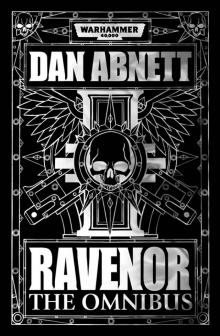 Ravenor Omnibus
Ravenor Omnibus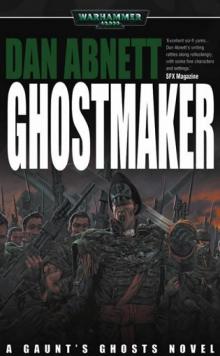 Ghostmaker
Ghostmaker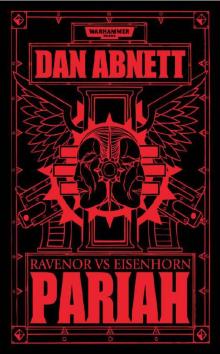 Pariah: Eisenhorn vs Ravenor
Pariah: Eisenhorn vs Ravenor![[Gaunt's Ghosts 12] - Blood Pact Read online](http://i1.bookreadfree.com/i1/04/04/[gaunts_ghosts_12]_-_blood_pact_preview.jpg) [Gaunt's Ghosts 12] - Blood Pact
[Gaunt's Ghosts 12] - Blood Pact![[Gaunt's Ghosts 05] - The Guns of Tanith Read online](http://i1.bookreadfree.com/i1/04/01/[gaunts_ghosts_05]_-_the_guns_of_tanith_preview.jpg) [Gaunt's Ghosts 05] - The Guns of Tanith
[Gaunt's Ghosts 05] - The Guns of Tanith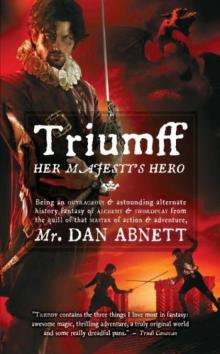 Triumff: Her Majesty's Hero
Triumff: Her Majesty's Hero![[Gaunt's Ghosts 09] - His Last Command Read online](http://i1.bookreadfree.com/i1/04/02/[gaunts_ghosts_09]_-_his_last_command_preview.jpg) [Gaunt's Ghosts 09] - His Last Command
[Gaunt's Ghosts 09] - His Last Command![[Darkblade 00.1] - The Blood Price Read online](http://i1.bookreadfree.com/i2/04/03/[darkblade_00_1]_-_the_blood_price_preview.jpg) [Darkblade 00.1] - The Blood Price
[Darkblade 00.1] - The Blood Price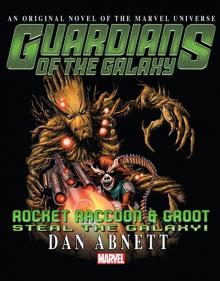 Guardians of the Galaxy: Rocket Raccoon and Groot - Steal the Galaxy!
Guardians of the Galaxy: Rocket Raccoon and Groot - Steal the Galaxy!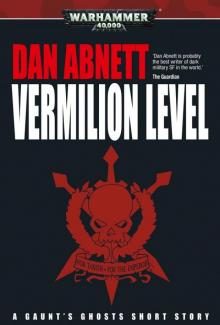 Vermilion Level
Vermilion Level In Remembrance
In Remembrance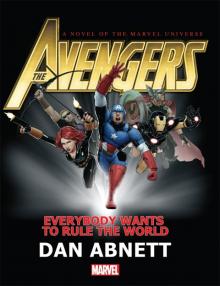 The Avengers: Everybody Wants to Rule the World
The Avengers: Everybody Wants to Rule the World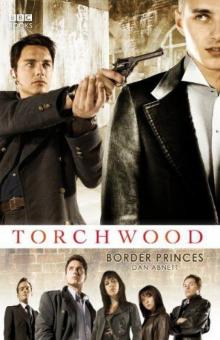 Border Princes t-2
Border Princes t-2![[Darkblade 02] - Bloodstorm Read online](http://i1.bookreadfree.com/i2/04/07/darkblade_02_-_bloodstorm_preview.jpg) [Darkblade 02] - Bloodstorm
[Darkblade 02] - Bloodstorm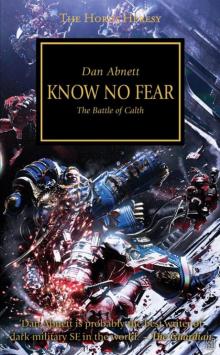 Know no fear. The Battle of Calth hh-19
Know no fear. The Battle of Calth hh-19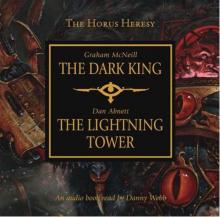 The Dark King and The Lightning Tower
The Dark King and The Lightning Tower